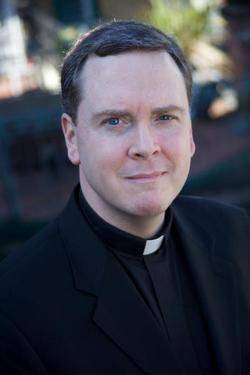Living as I do in a very large glass house, I am reluctant to throw stones. In fact, I don’t even permit them on my property. I say this because spring is a good time to take stock of the moral quality of one’s relationships and general environs, to get a better idea of how one is or is not a part of the world’s problems. In recent years, in addition to the indispensable, unbelievably patient grace of God, I have come to rely on a more this-worldly insight in order to make sense of such things: the thought of René Girard, the French-American Catholic cultural critic who died last year at the age of 91. Girard stumbled onto an idea a few years ago that he calls mimetic theory.
First, Girard says, all human desire is mimetic. Apart from fundamental biological needs, human beings copy one another, not just in basic linguistic and behavioral patterns but in terms of what we consciously want. Strictly speaking, then, I have no desires that are original to me; rather, I desire according to the desire of another. Girard’s second insight is that human conflict occurs when the desires of multiple people converge on the same object, either seen (that iPad) or unseen (happiness). Third, this conflict, which he calls mimetic rivalry, quickly escalates and can plunge a whole community into crisis. Such crises are resolved through what Girard calls the scapegoat mechanism: One person, then another, and then a whole group of people point the finger of suspicion at a single individual, the sacrificial victim, who is then expelled or destroyed. The sacrifice of the scapegoat restores order to the community...until the next crisis.
Admittedly, this is pretty grim news. We are, by nature, not free in the way that we thought; worse, we are prone to rather brutal forms of violence. Perhaps we suspected all of that. The good news, however, is that there is a way out: the Gospel. In the words of one student of Girard, Michael Kirwan, S.J.: “The Gospel is the biblical spirit that exposes the truth of violent origins, takes the side of the victim and works toward the overcoming of scapegoating as a viable means of social formation.” In other words, the life, death and resurrection of Jesus subvert the whole ghastly enterprise of human rivalry and violence.
If you’re still reading, then you might be interested enough to attend the symposium advertised on the back page of this issue: “Principle and Practice: René Girard, Politics, Religion and Violence.” Then again, you might be asking why any of this might matter. For starters, if mimetic theory is true, then we may need to rethink some of our most treasured presuppositions. If Girard’s world is, in fact, the world we live in, then the modern notion of the autonomous, self-actualizing individual, for example, is nothing more than a romantic myth.
According to Girard’s theory, the scapegoat isn’t necessarily innocent and frequently is not. A person can be a pretty big sinner and still be the scapegoat. That counterintuitive fact might help explain the sense of self-righteous satisfaction we derive from throwing stones, even and perhaps especially when we happen to be right. And there is a lot of stone throwing at the moment, especially in our politics. The news is full of tales of individuals who have done stupid, even sinful things. Many of us like to point to those individuals—prelates, athletes, next-door neighbors, whomever—and say, along with the rest of the group, that there is no way that we could have done what he or she did. That’s a comforting thought, though most likely false. Girard’s theory, not to mention revelation and much of human history, challenges that smug, self-righteous assumption. We would all do well to consider how. I myself intend to do so in the quiet, though expansive living room of my glass house.
A version of this column appeared in the issue of March 11, 2013.








